Look no further – you’ve reached the ultimate guide to oral language development. Oral language is critical for literacy development and will help children become successful communicators.
With this guide, you will come away feeling confident and with fun new ways to teach and build oral language in preschool.
What You Need to Know About Oral Language Development in Preschool
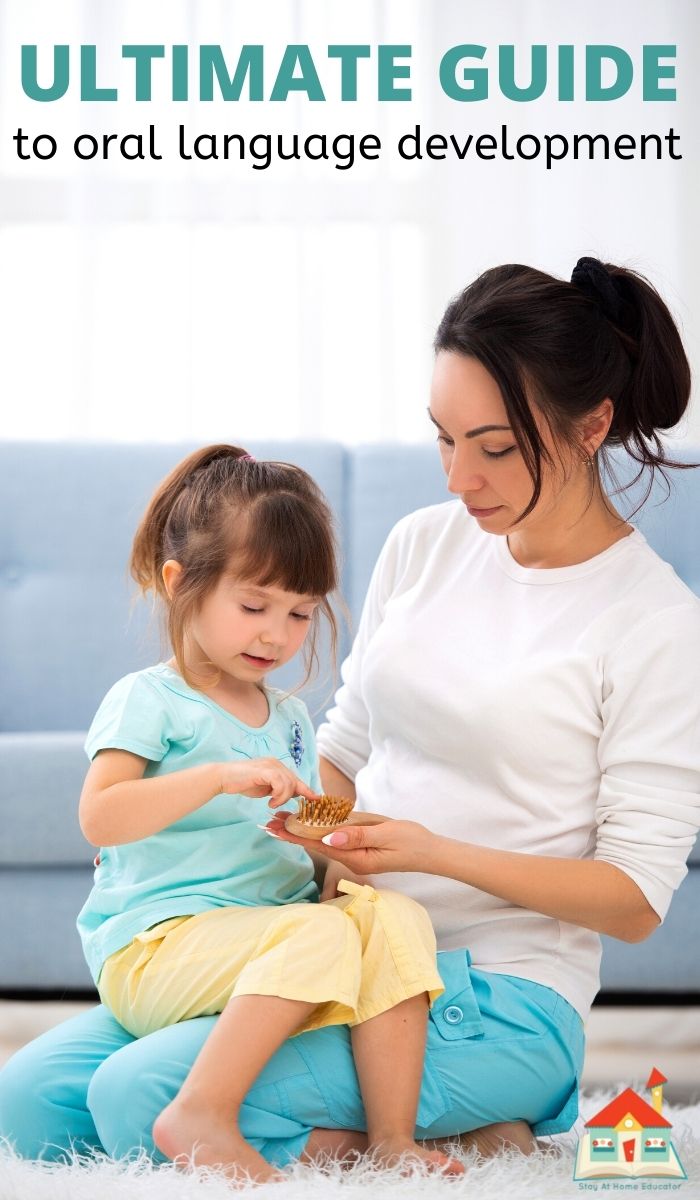
Talking skills and oral language development have a strong impact on reading success. And, we want strong readers, right?
And it’s not just about listening and speaking, but also about written language. Oral language supports not only reading and speaking skills but is also a determining factor in writing development.
Research has shown that oral language—the foundations of which are developed during the early learning years—has a critical impact on children’s readiness for kindergarten as well as their reading and writing success throughout their academic career. Oral language skills provide the foundation for fluency and comprehension.
Human beings have a unique ability to learn the rules of the language used in their environment. We are born to speak. If you have ever been in a car with a jabbering toddler or preschooler, you can confirm that young children are born to talk…and talk…and talk.
Almost all children learn to speak through practice and use over time, with little or no formal instruction. The environments where children learn their language can have a direct impact on their success in literacy.
This is why it’s so important to include oral language lessons in your preschool lesson plans!
Preschool language development largely happens as children follow the models of significant caretakers around them. As with learning any other skill, learning to talk requires time and everyday practice and children mimic not only the actual words adults around them use but also the way in which they are used. This means that when significant adults in a child’s life pronounce words incorrectly or use improper grammar, this is the kind of language the child will also use.
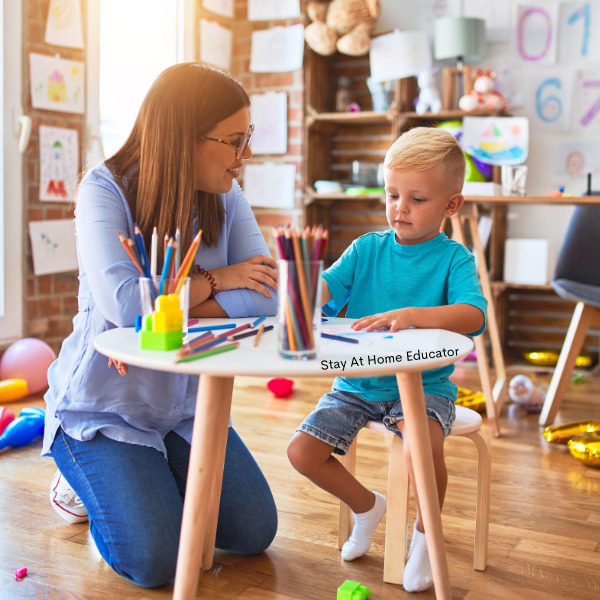
What Is Oral Language?
Oral language is the system through which we use spoken words to express knowledge, ideas, and feelings. Developing ELs’ oral language, then, means developing the skills and knowledge that go into listening and speaking—all of which have a strong relationship to reading comprehension and to writing.
Moats 2010
How Does Oral Language Affect Literacy Development?
Oral language encourages emergent literacy. Without oral language, children are at an extreme disadvantage when learning the ways in which we speak, the meaning behind the words, and how that translates to the written word.
There are four main ways how oral language supports writing and reading.
- Oral language develops vocabulary concepts. Children gain information about word meanings and pronunciation and these concepts are first introduced in speaking and understanding others’ speech.
- Children learn through oral language the structure of language and that it communicates meaning. When children can articulate their words and thoughts clearly, they have an advantage in learning to read over those children who have poor oral language skills.
- Oral language teaches children cultural nuances, giving them specific background knowledge that aids in reading comprehension.
- It builds a desire to use language for a variety of purposes, such as reading, writing, and listening.
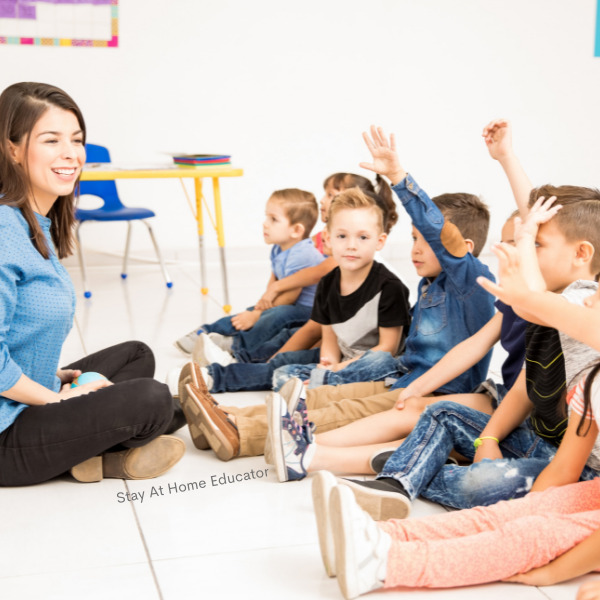
How to Develop Oral Language Skills In Preschool
“Reading and writing float on a sea of talk.”
James Britton
Oral, or spoken language, is only one of the four domains of language. (The other three domains are listening, reading, and writing). All four domains of language correlate and affect one another in their development.
Parents and caregivers play an important role in a child’s oral language development. They can impact how quickly and how well oral language can develop. The following are some ways in which parents and caregivers can nurture a solid foundation of language development:
- Read to your child, at length, and at frequent intervals.
- Treat children as though they are conversationalists. Listen carefully to what your child is saying and respond with appropriate and sincere thoughts that encourage more dialogue.
- Encourage your child to interact with other children. Peer learning, especially in mixed-aged playgroups, can be a valuable experience for young children still gaining language skills.
- Remember that as a parent or caregiver you can reinforce good habits of speech, so model for your child a mastery of oral language and fluency. This includes using appropriate language, expression, grammar, and vocabulary.
- Help your child recognize the relationship between speech and writing by encouraging storytelling, both orally and in written form.
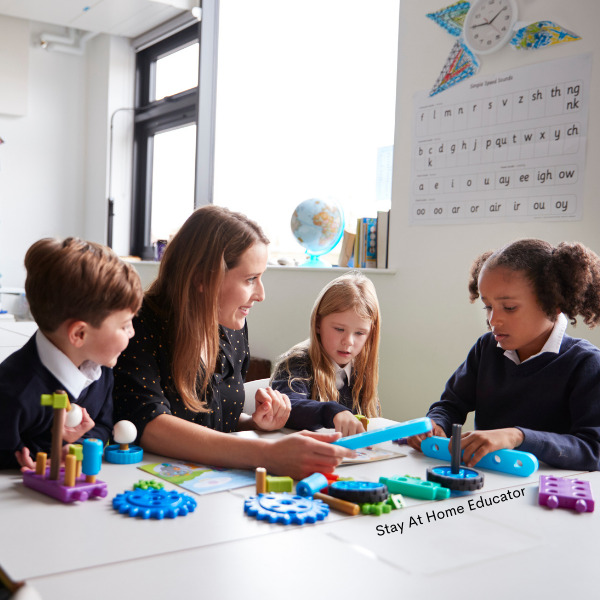
Activities for Developing Oral Language in Preschool
Research indicates that children who enter school with strong oral language skills learn to read and write with greater ease and tend to excel more in school than their peers with less knowledge of vocabulary and language structure.
We are provided those moments at the snack table or while playing with blocks when your students or children jabber on and on. These moments can be a valuable opportunity to encourage and increase their oral language skills and later success in school.
Here are some tips to develop oral language without hours of prep or planning:
- Model speaking kindly and respectfully.
- Ask open-ended questions and encourage them to ask questions.
- Encourage your child or students to explain what they are thinking or feeling and offer words/vocabulary when needed.
- Comment on ideas and objects in your child’s or students’ environment to encourage oral engagement.
- Read to your child or students, frequently and at length, every day, and encourage a response to reading.
- Sing, chant, and recite rhymes and fingerplays.
- Teach your child or students how to take turns and how to respond (on-topic) during a conversation.
- Model thinking aloud, for example, “I wonder what would happen if…”
- Use new vocabulary when speaking with your child or students and encourage them to use new words.
- Read aloud young reader chapter books to your child or students.
Speak, listen, and read to your child as much as possible to help develop oral language skills.
Books for Developing Oral Language
It’s no secret that reading to your child is one of the best ways to develop oral language skills! Here are the books that educators and parents reach for time and time again.
Free Oral Language Activities

I’m Sarah, an educator turned stay-at-home-mama of five! I’m the owner and creator of Stay At Home Educator, a website about intentional teaching and purposeful learning in the early childhood years. I’ve taught a range of levels, from preschool to college and a little bit of everything in between. Right now my focus is teaching my children and running a preschool from my home. Credentials include: Bachelors in Art, Masters in Curriculum and Instruction.
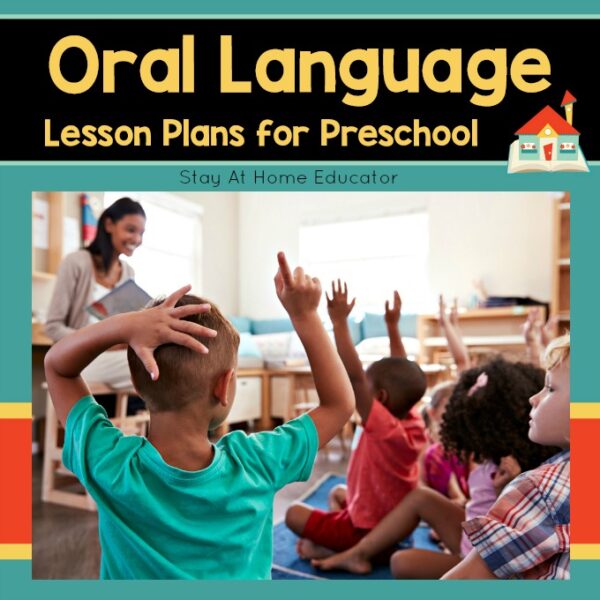
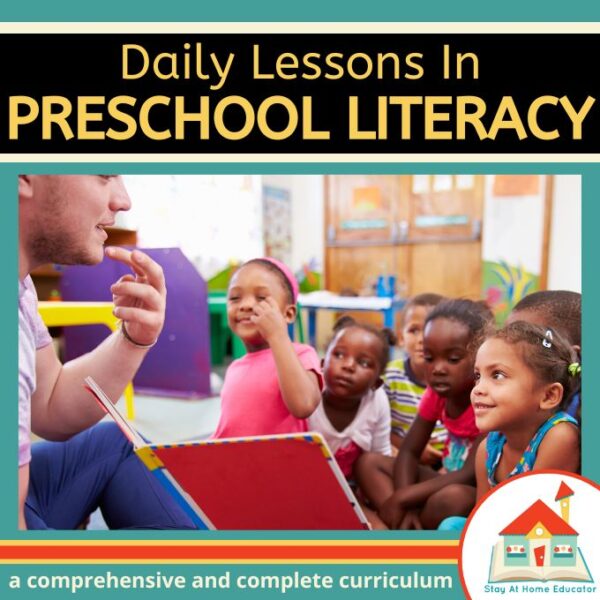


[…] everything that adults do to support children’s language and literacy is critical. From the conversations we have with children to reading books together and learning to write our […]